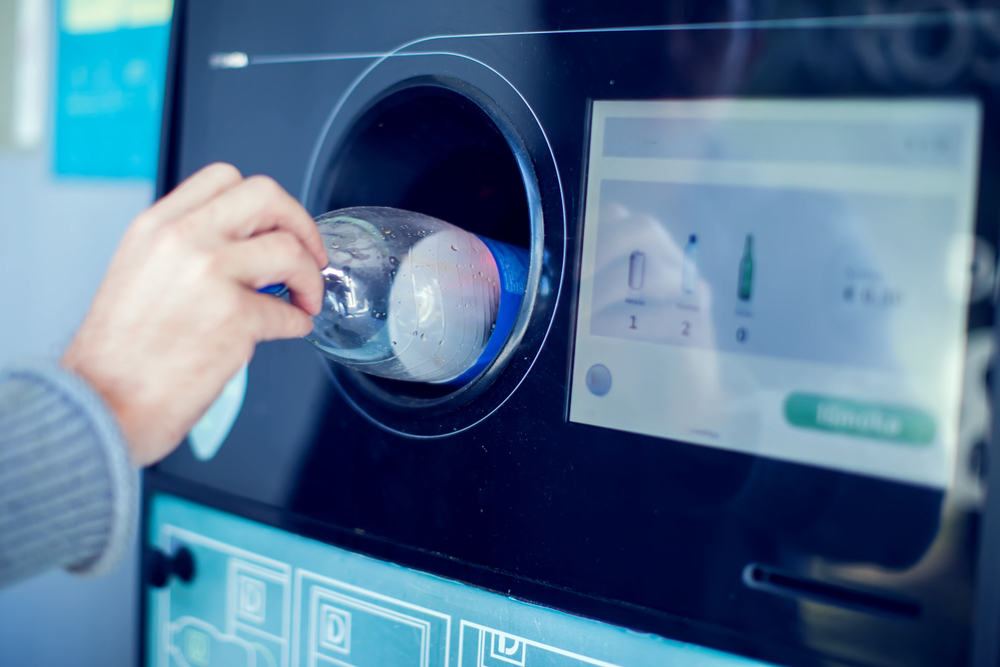The Issue
Beverage containers – plastic bottles, glass bottles, and aluminum cans – are highly recyclable. Yet every year, millions of these containers are buried in landfilled, burned at an incinerator, or littered in the environment. Why? Because we don’t have effective systems to collect, manage, and recycle these containers. But we can change that.
The Model Bill
Deposit return systems, or “Bottle Bills,” create recycling programs specifically designed to collect, manage, and recycle empty beverage containers. In fact, these programs have the highest recycling rates in the world. Even better, these programs can create the infrastructure and consumer culture needed to develop reusable and refillable beverage systems. That means having durable beverage containers that can be returned, washed, and refilled for repeated use.
Here’s how a deposit return system works: A small refundable deposit is placed on almost every recyclable beverage container sold in the state. The consumer pays this deposit when they buy their beverage and get it back when they return the empty container for recycling or refilling. The companies that manufacture the beverage pay retailers and recyclers for the cost of collecting, transporting, and recycling all these empty containers.
This creates a separate recycling stream for beverage containers, which keeps them clean, sorted, and more easily recycled. More importantly, the refundable deposit placed on each container motivates people to recycle.
Progressing Toward a Zero Waste Future
As the climate crisis worsens, we need to recycle and reuse more, and throw away less. To do this we need Bottle Bills.
The data is clear, Bottle Bills are the most effective and reliable way to recycle beverage containers. Many systems capture and recycle 90% of all beverage containers covered by a deposit. Better recycling means that less materials are being buried in landfills or burned at incinerators. It also means that less plastic is needed to make new beverage containers. What’s more, Bottle Bills also help combat litter. States without Bottle Bills have double the litter than their Bottle Bill counterparts.
Despite their remarkable success, currently only 10 States in the U.S. have Bottle Bills. While many of these programs have been neglected and aren’t operating at full capacity, Bottle Bills are still the most effective recycling systems in the country. To achieve real, effective beverage container recycling, we need new Bottle Bills.
Be part of the solution. Download our model legislation today and contact your state representatives about introducing the bill in your state this legislative session. Together, we can move toward a future where recycling actually works.
